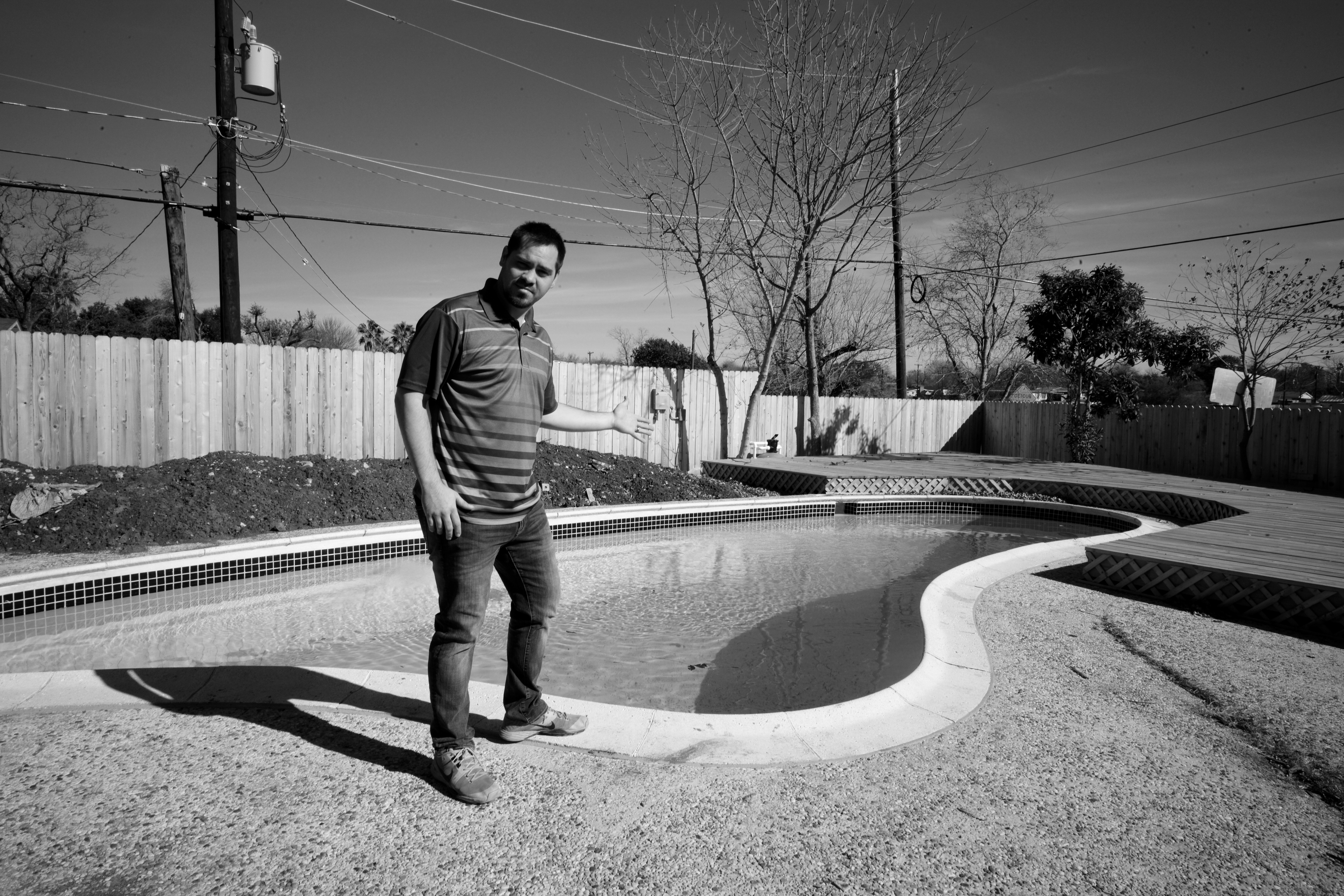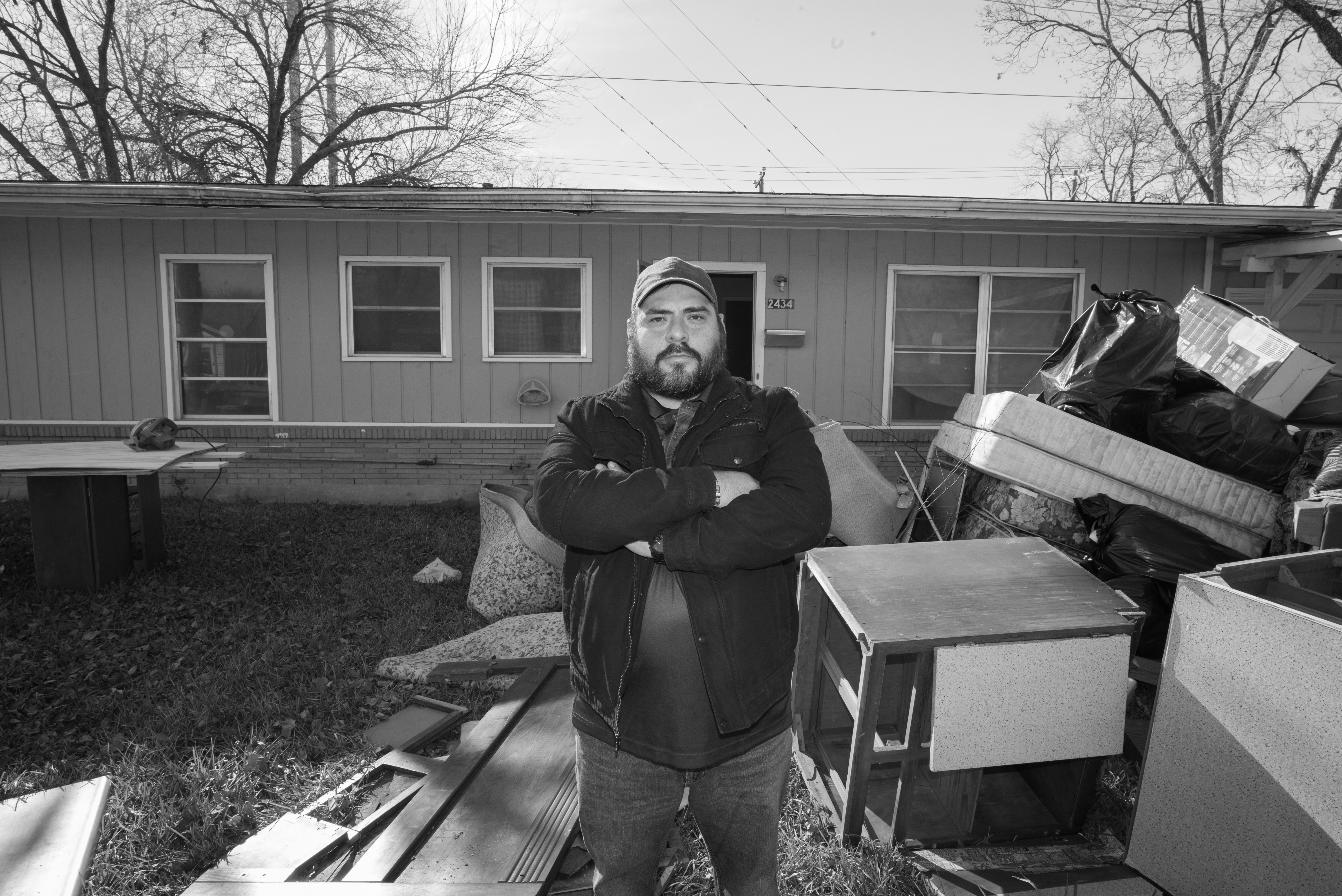You have /5 articles left.
Sign up for a free account or log in.
On our last full day we had an appointment with Rudy and Dave, who flip houses for their real estate company.
Dave and Rudy met while waiting tables at Pappadeaux Seafood Kitchen in San Antonio. Dave’s dad flipped houses, so Dave knew something of the business, and he encouraged Rudy, who completed the training for his real-estate license in four days. (It usually takes two months, Rudy said.) Dave’s been at it now seven years, Rudy five. They hustle. They had four rehab projects going and also manage rental houses.

“Not like you wake up and get a paycheck,” Dave said. “Gotta go out and earn it.”
Their office is a former ranch house in a nondescript part of central San Antonio. They flip houses to a self-developed formula and sell them for $145,000 to $330,000. Dave said that despite the attention that wealthier areas in north and northwest San Antonio receive, 80% of the city’s real estate goes for under $300k, and the average for first-time buyers is under $200k. They say their clients are lower- and middle-class, and they see themselves as helping people, like the ones they grew up, with to own houses.

“I talk to people all day long,” Rudy said. “It’s easy to sell those things, all day long. In some ways we are living the dream.”
They’re also engines of change in old neighborhoods, where improvements and rising taxes will determine who can live there. They showed us two houses their man Leo was rehabbing. At one of them an older Hispanic woman, a neighbor, came over to look at a little table among the junked furniture piled in the yard. She took an interest in some broken cabinets, stroking them lightly, as if she had no right. Dave let her have them but added, “Washer and dryer are 75 each.”
The old man who owned the place died five years ago, but his children had some problem with the estate, and the house only recently sold. The dead man’s calendar was still on the wall; his fishing and crabbing gear was tucked away in a little side room; a cane for the blind lay in the dirt in the side yard with other trash waiting to be thrown away.
Dave’s friend, a probate lawyer, got the place for him at $64k. Black mold and animal droppings would need to be removed, there was construction going on in the kitchen, and the little house sat under enormous electrical pylons, but Dave expected to turn a profit. He bought by his formula that he stuck to, so purchase price and rehabbing costs would come to 75-80% of resale value.
Rudy didn’t remember how many of these transactions he’d done in the last five years—maybe 120, 130, he said.
“Just another house, just another paycheck,” he said.





